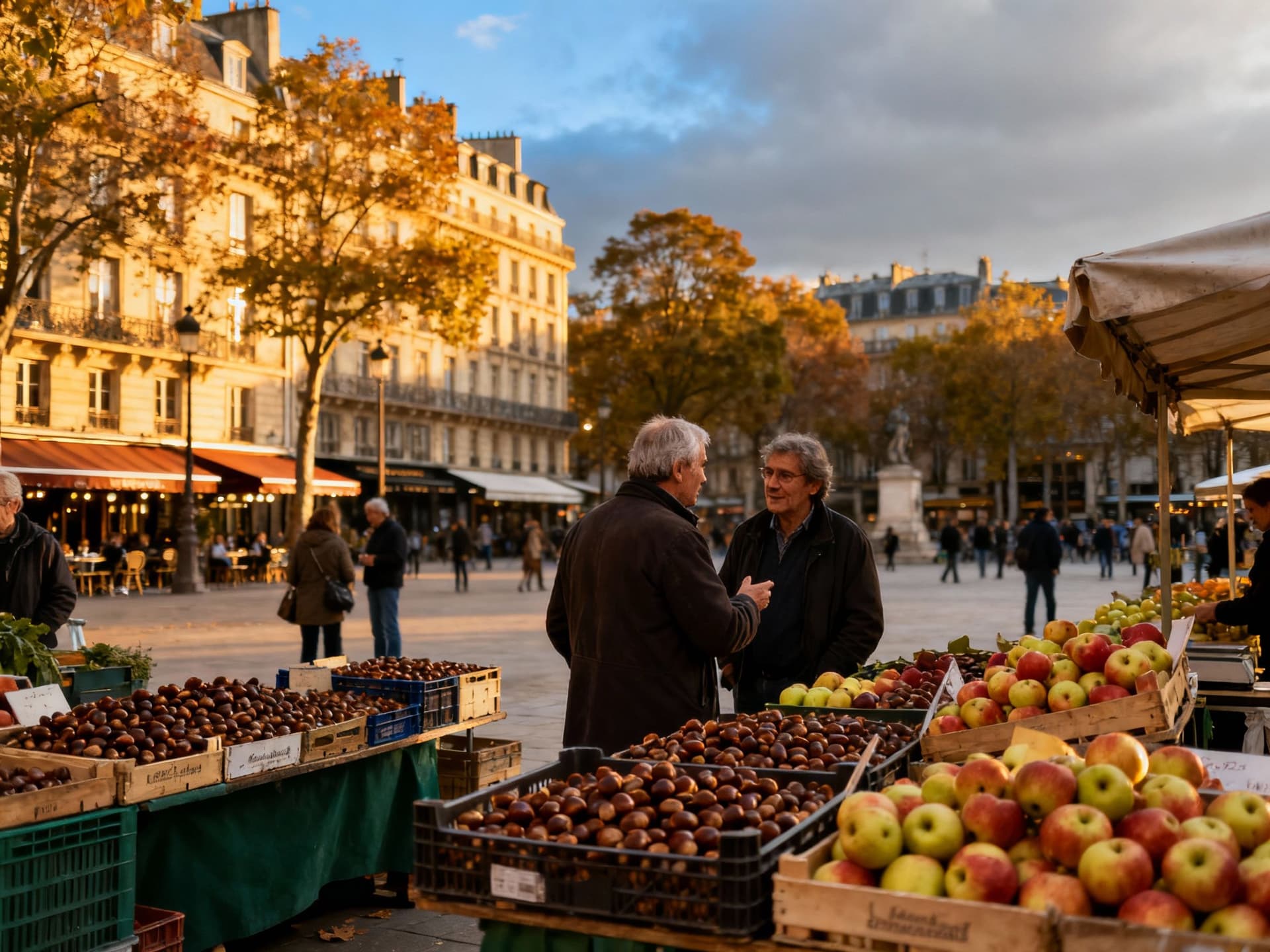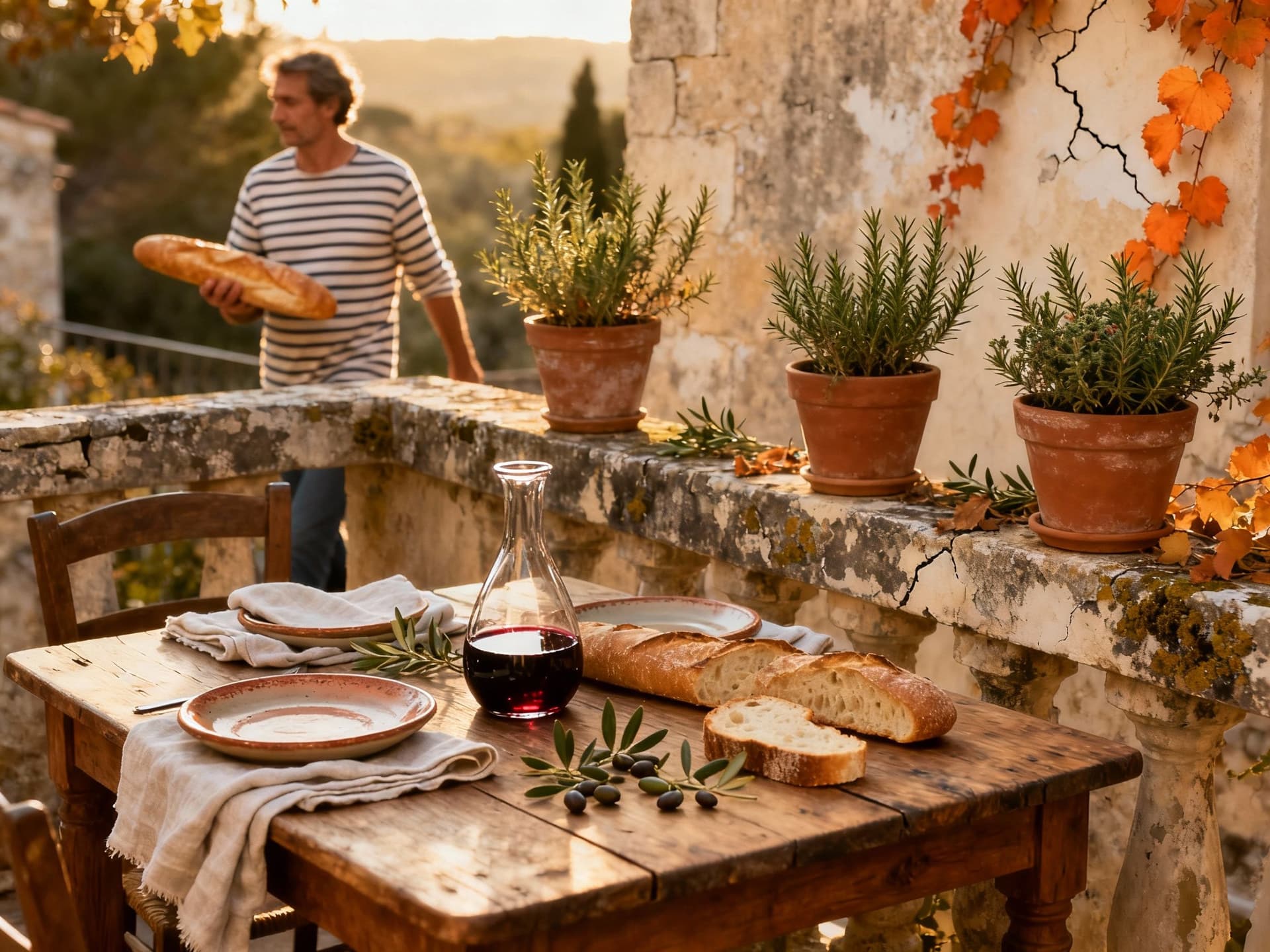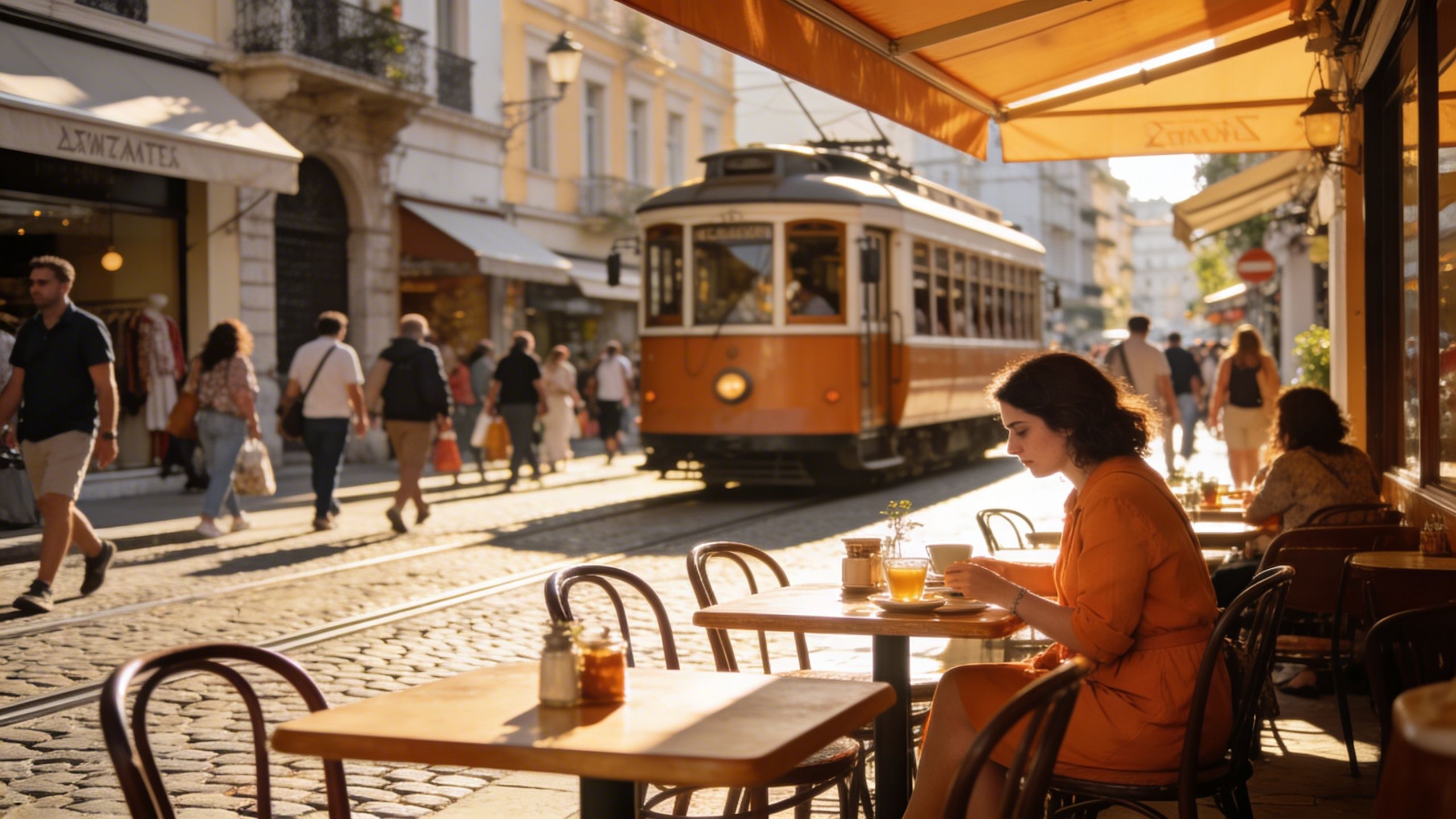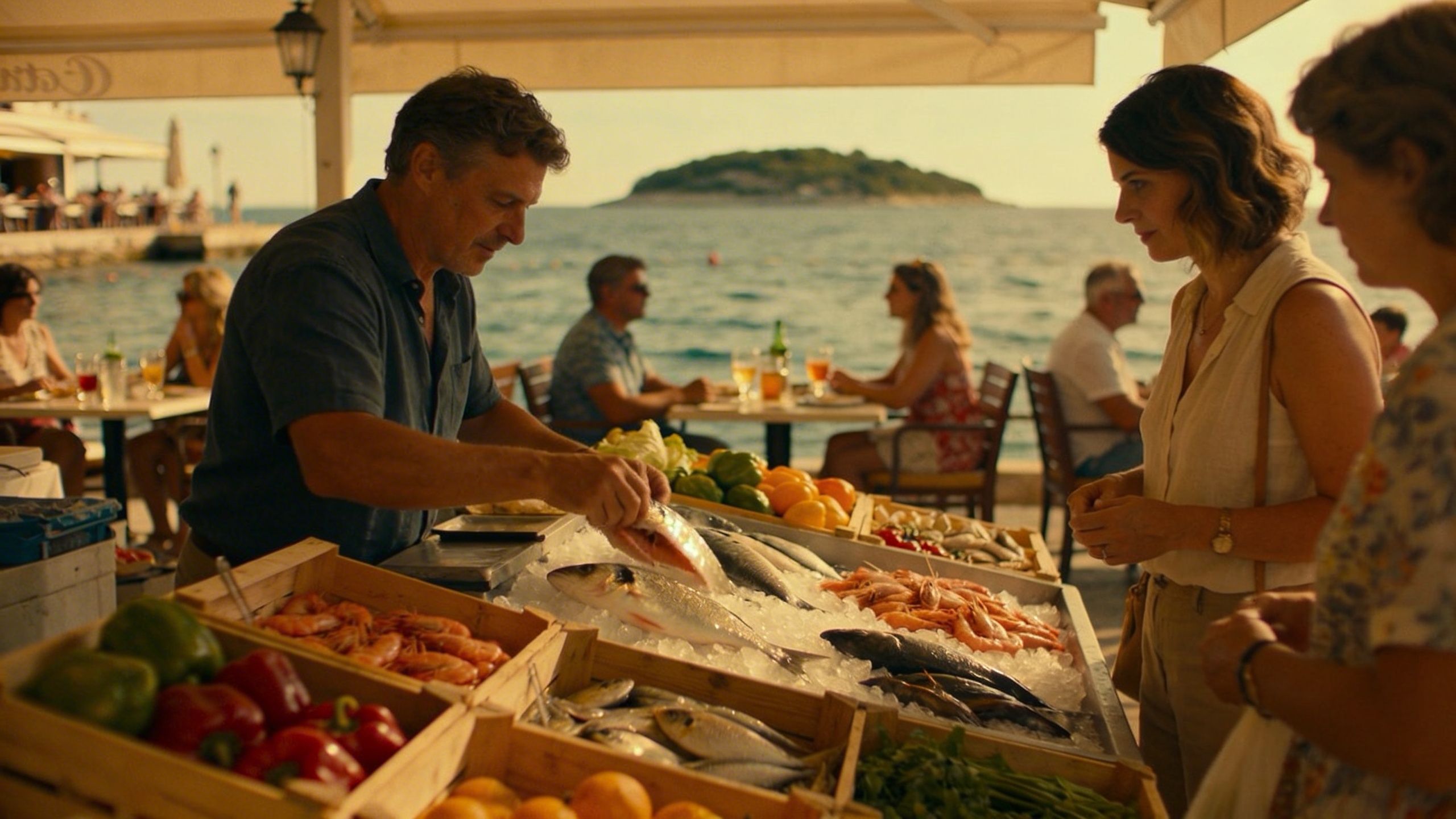Why Autumn Offers France’s Best Value Buys
Autumn viewings reveal France’s real neighbourhood life and negotiation leverage—INSEE shows price stabilisation into 2025, making off‑season buying a practical advantage.
Imagine arriving in France the week after harvest festivals: markets reopening with chestnuts and late apples, cafés on Canal Saint‑Martin filling with after‑work conversations, and streets clearing of summer tourists. For many international buyers, that calm — often October to November — is when real life in France shows its rhythm and when better buying opportunities appear.
Living France in the off‑season: why atmosphere matters

France outside summer is not 'quiet' — it’s authentic. Local rhythms reassert: marchés (open markets) move to autumn produce, neighbourhood boulangeries stage mid‑week queues, and cultural calendars shift to theatre and wine fairs. INSEE data show price stability in late 2024 and a price rebound into 2025, meaning seasonality affects demand more than structural value. Buying when the market's seasonal activity cools can reveal underpriced listings that summer bounces hide.
Spotlight: Paris arrondissements that feel different in autumn
Walk the 10th and 11th in October and you'll see why: Canal Saint‑Martin's cafés are no longer tourists’ selfie stages but local meeting points; Belleville trades noisy summer terraces for weekday neighbourhood life. Transaction data suggest activity evens out after summer — presenting buyers the chance to compare multiple offers and spot realistic pricing, especially in mid‑range apartments where sellers recalibrate expectations.
Coastal shift: Nice and the Riviera after high season
The Côte d'Azur's rental spike in July–August hides quieter months where long‑term tenants and locals return. Post‑festival, small rental returns are steadier and negotiating power increases for buyers not chasing peak‑season listings. Consider Vieux‑Nice streets and Golfe‑Juan where off‑season comparisons expose genuine value beyond glossy summer asking prices.
- Lifestyle highlights worth timing your visit for
- October marchés: Rue Cler (Paris) and Cours Saleya (Nice) — better produce and local conversations
- Wine harvest weekends in Burgundy — quieter property viewings and local contacts
Making the move: timing, property types and practical trade‑offs

The dream of quiet autumn viewings must be balanced with market signals. INSEE shows a modest rebound in early 2025: second‑hand prices rose 1.0% in Q1. That means off‑season bargains exist — but they’re more about negotiation leverage and transaction speed than permanent discounts. Understand whether you're chasing yield (rental income) or lifestyle (owner‑occupier uses) before timing a purchase.
Property styles that fit seasonal living
Stone maisons in Dordogne and Provençal houses offer insulation for cooler months and gardens for spring revenue; central Paris apartments prioritise size efficiency and transport access for year‑round rental demand. Match property type to how you'd actually live: terraces and verandas matter for summer hosting, but heating efficiency, insulation, and double glazing determine comfort (and running costs) in autumn and winter.
Work with agents who understand seasonality
A local agency that times listings to the market cycle gives you an edge: they can show newly withdrawn summer listings, owner‑motivated autumn sales, and anticipated pricing moves after interest‑rate shifts. Ask agents for transaction timelines, comparable sales from the past three months, and typical negotiation cushions during off‑season months.
- Practical autumn buying checklist
- 1. Visit in off‑peak weeks (mid‑October or mid‑November) to assess true neighbourhood life
- 2. Request 12‑month utility and rental history for prospective rentals to spot seasonality
- 3. Compare seller urgency signals: price reductions, withdrawn listings, and time‑on‑market
Insider knowledge: what expats wish they'd known
Expats tell a common story: they fell in love with sunny façades and weekend markets, then discovered weekday life is what sustains a home’s value. Wealth concentration in some Paris arrondissements reinforces long‑term price resilience, but it also inflates competition. Off‑season viewings give you a clearer sense of everyday noise, commute times, and who your likely tenants would be.
Cultural pragmatics: how French rhythms change your daily life
Expect different opening hours, a slower midday pace, and stronger neighbourhood ties. Learning a few local phrases unlocks better local offers; speaking to the boulangerie owner or market stallholders will reveal whether a property rents easily or sits vacant outside high season. These micro‑signals matter for yield forecasts and for feeling at home.
Long‑term view: seasonal buying as a strategy, not a gimmick
Using seasonality is about process: off‑season offers better comparables, clearer neighbourhood intelligence, and often less bidding. INSEE shows France’s market paused then nudged upward in early 2025, which means seasonal timing complements macro awareness: pick autumn viewings to avoid emotional summer premiums and to negotiate with sellers recalibrating expectations.
- Red flags to spot during off‑season visits
- Closed neighbourhood shops (long closures can signal economic decline rather than seasonality)
- Poor heating or single‑glazed windows — winter costs eat into rental yield
- High turnover buildings where short‑lets dominate — check local short‑let regulation risk
Conclusion: If you want France’s lifestyle without the summertime premium, travel in autumn, interrogate 12‑month demand data, and work with an agent who reads seasonal signals. You’ll see the neighbourhood, not the postcard — and that’s where durable value hides. Start by booking off‑peak viewings and requesting recent comparable sales; the calm will pay for itself.
Dutch investment strategist who built a practice assisting 200+ Dutch clients find Spanish assets, with emphasis on cap rates and due diligence.


